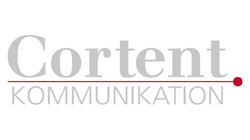The German Mittelstand

Commentary on small and medium-sized enterprises
Opportunity for Investors
Family Businesses Listed on the Stock Market Offer Advantages for Long-term Investments
Not only are family businesses viewed in a more favorable light than corporations by large sections of the public, they also form the backbone of the German economy. The majority of German companies are family-owned and many of these are listed on the stock market. They include DAX heavyweights such as the automobile manufacturer Volkswagen and SMEs like the Swabian IT service provider Bechtle. And they generally enjoy greater trust as well: With a family as the main investor, these businesses focus on the continuous development of the company over the long term. Their actions are not governed by short-term considerations in an effort to meet the quarterly expectations of analysts. This strategy of maintaining a steady hand pays off in operational terms, as a study by the Institut für Familienunternehmen (Institute for Family Businesses, IFF) revealed. The revenue generated by the listed family businesses that were examined in the study increased by an average of 12.7 percent last year, which was faster than the DAX corporations’ revenue growth of just 8 percent. Family ownership wins this round!
Family businesses also fare well on the stock market. In the last six months, the DAXplus Family Index, which measures the share price performance of listed German and international family businesses, rose by more than the DAX, which is home to the 30 largest German listed companies. Success on the stock market is also due to the strategy of maintaining a steady hand, since priority is given to the long-term operational development of the company. Many families are already focused on sustainability when they launch their businesses on the stock market. A recent study by auditors at PricewaterhouseCoopers and WHU Otto Beisheim School of Management found that, when floating their companies on the stock market, these families show that they are content to earn less revenue than other companies. As the authors of the study explain, this is partly an attempt to minimize loss of control and risking their reputation. However – and they are to be commended for this – their cautious price strategy also provides them with the scope for a positive share price performance that benefits their new fellow shareholders. Another advantage for investors when it comes to listed family businesses is that there is less danger of a large-volume sale. As the representative of a family business said recently: “I’m not interested in the share price. After all, I don’t want to sell off my shares.”















